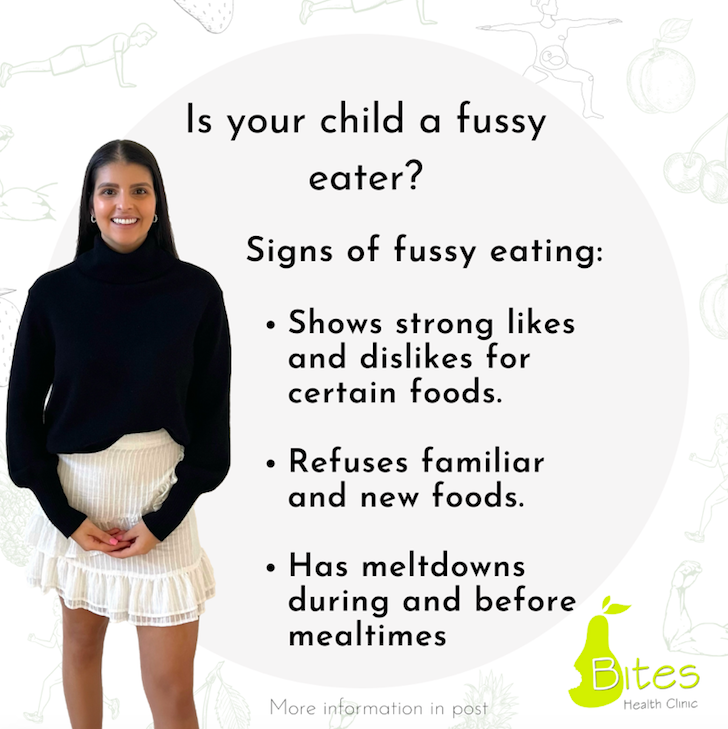
Our 5 best tips to promote food acceptance:
1.Serve foods in small portions. Serving your child big portions of something new can be overwhelming for them! Serving smaller portions will encourage them to try all foods on their plate and ask for more if they are still hungry. It also helps to reduce food waste if they are not yet ready to accept the foods during that meal.
2. It can be helpful to place high chairs outside or complete food play in a bathtub or shower so messes can be more easily cleaned.
3. Don’t give up on new foods if they reject them. It can sometimes take children up to 15 times before they will try a new food. Don’t feel disheartened if they won’t try it right away!
4. Make mealtimes fun. When you can, cut foods like sandwiches into shapes or make faces out of fruit and vegetables. This can encourage your child to eat different foods and become excited about mealtimes!
5. Allow your child time to eat. Most children will eat the most within the first 20-30 minutes of mealtime. Try to avoid making mealtimes longer than this as your child may become disinterested and begin to resent this time. When they seem disinterested and “over it” do not force them to stay at the table to finish. Simply pack the food away in a container and try again later.
These are only some of many different techniques you can implement into your home if your child is a fussy eater. For some children it can be really difficult to get them to try and eat new foods which causes a lot of stress for parents trying to do their best. At Bites, our dietitians are experts in helping fussy eating children explore new foods and improve diet variety. We implement fun exposure activities in our sessions in clinic which can then be practised at home to speed up the learning. We offer ongoing support and encouragement for parents to help improve your child’s diet! Fussy eating can also be caused due to underlying issues such as allergies or food intolerances. Kids may avoid foods because they have a reaction that may not always be physically visible to parents. Our dietitians can check if this may be an issue and provide meal plans to investigate food chemical intolerance or refer to our network of health professionals for further testing.










